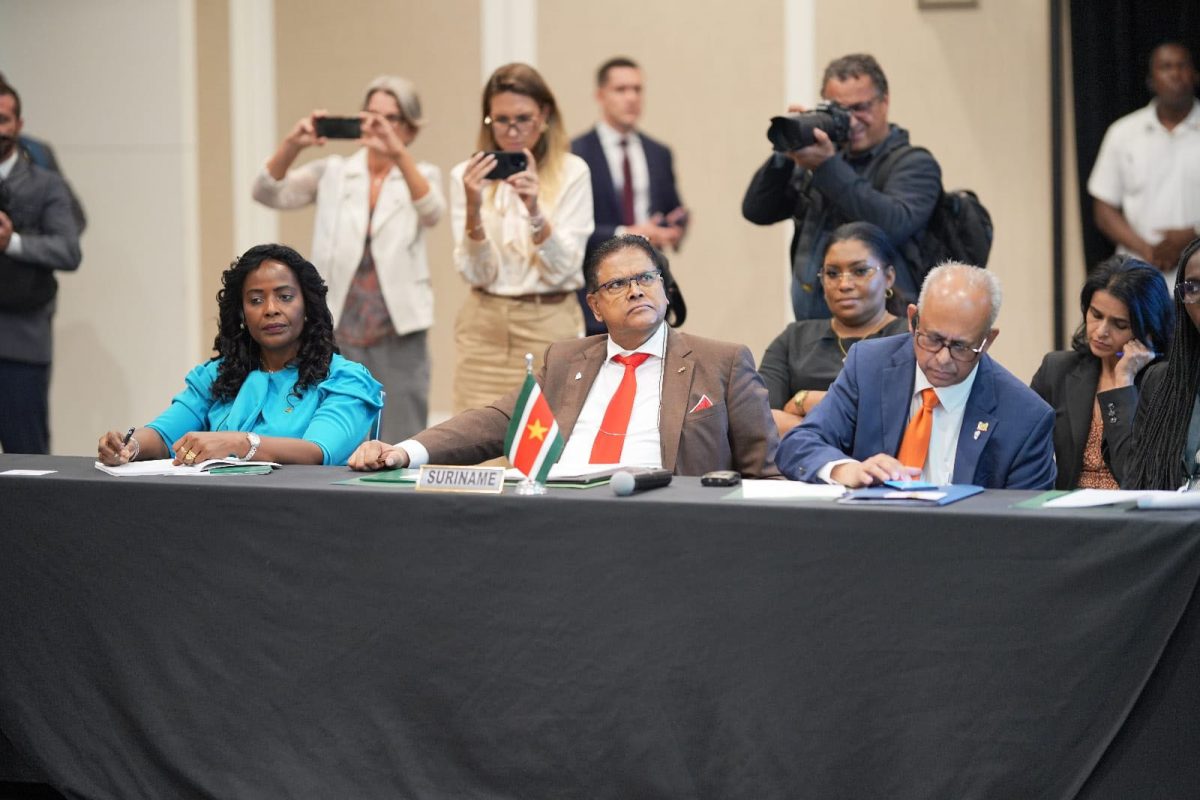Following a trilateral meeting on Wednesday, Guyana, Brazil and Suriname have agreed to establish working groups on infrastructure, energy and security.
A communique yesterday from the meeting which saw the attendance of the three presidents: Irfaan Ali, Luiz Inácio Lula da Silva and Chandrikapersad Santokhi of Guyana, Brazil and Suriname respectively, said they also recommitted their respective countries to work unceasingly towards the maintenance of Latin America and the Caribbean as a Zone of Peace and of cooperation for sustainable development.
This commitment is seen as crucial for Guyana which has been the subject of aggressive and threatening behaviour by Venezuela over the border controversy between the two countries.
Held on the margins of the CARICOM Heads of Government summit here, the communique said that the holding of the trilateral meeting reflects the interest of the governments and societies of the three countries to promote sustainable development with social justice of their respective populations, based on their historical relations of friendship and good neighbourliness.
It also reflects the similar views they maintain about the importance of Amazonian and South American integration and the development of a more just, inclusive and equitable global order, with full respect for International Law and for the principles and purposes of the Charter of the United Nations, it added. This is also seen as important in the context of the border controversy with Venezuela as Guyana has taken its case to the Inter-national Court of Justice for settlement.
The communique said that the Presidents agreed to establish trilateral working groups, at the technical level, in the areas of (i) physical and digital infrastructure, (ii) energy and (iii) cooperation in the fight against transnational illicit activities to deepen and implement initiatives of common interest. The Working Groups will report the progress attained to the Ministers responsible for the respective areas, for consideration in trilateral meetings of the Ministers.
In the area of infrastructure, the communique said that the Presidents recognised the opportunity to advance in the consolidation of projects that bolster the physical and digital connectivity between the three countries, such as the full paving of the Linden-Lethem road, connecting the Brazilian state of Roraima to Georgetown, and the modernisation of the road connection between the Brazilian state of Amapá and the capitals of Guyana and Suriname, passing through French Guiana, which is to be included in future discussions on the route. They also underlined the importance of examining, in this context, the measures for the optimization of these routes in terms of trade and investment facilitation.
In the field of energy, the three leaders agreed to deepen talks on cooperation in the oil and gas sector, including exploration and production, regulation and contingency plans and emergency response. They stated their interest in the development of sustainable projects of hydroelectric generation and integration of electrical networks, in order to boost the energy security and efficiency of regional systems. They also welcomed the opportunity to advance discussions on other renewable energy modalities, including bioenergy.
They also reaffirmed their interest in strengthening cooperation in the fight against transnational crime, through joint police operations, exchange of intelligence information, capacity developing activities and negotiation of projects for the use of remote sensing images as a tool to combat transnational organized crime.
“In reviewing the Cooperation in security in the Guiana Shield region, the presidents expressed their satisfaction with the initiatives taken during meetings between the security agencies in Brazil, Suriname, Guyana, and relevant adjacent countries. However, they urged those agencies to intensify their cooperation in addition to the meetings of the working group to be established in the sector of security”, the communique said.
The Presidents also agreed to ensure the successful implementation of the Minamata Convention on Mercury in their respective countries. Controlling mercury use here in the mining sector has been a major challenge for Guyana and alternatives to the metal have not gained traction.





